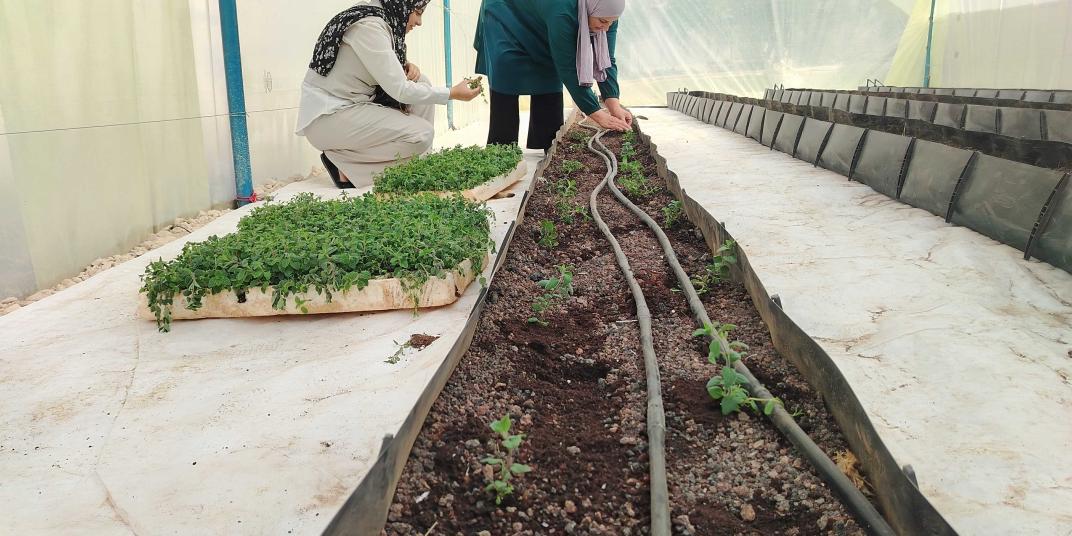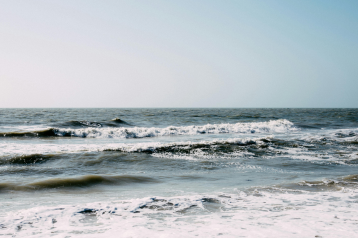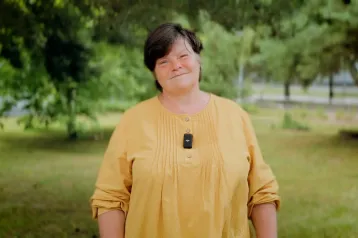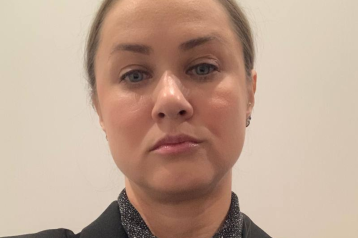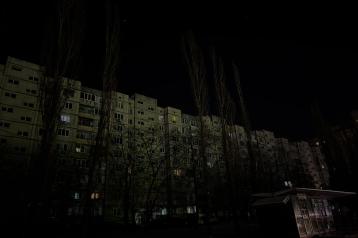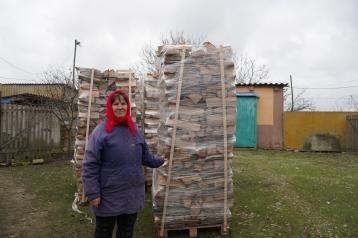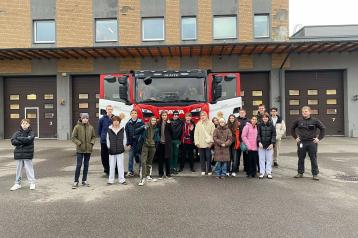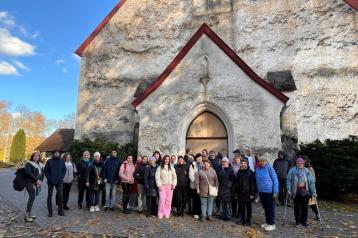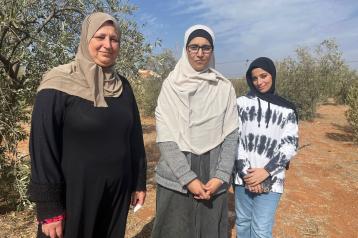Countries
- We organised an international humanitarian conference in Tallinn. This year, the conference focused on institutional reforms and the funding crisis, the digital transformation, and access to crisis affected communities.
- With the support of the Estonian Ministry of Foreign Affairs, we continue providing food assistance in hospitals in Gaza, distributing over 9,000 meal portions in total. Read more on the Refugee Council website.
- In Estonia, 37 young people with a refugee background completed a training course on artificial intelligence.
- Throughout October, Estonian language learning sessions for young people were held in cooperation with Tallinn University, based on the implicit language learning methodology.
- The mental health support hotline for Ukrainians has received more than 2,900 calls over the past six months.
- In Armenia, community councils amplifying the voices of people with a refugee background were established in four new locations in October – Yerevan, Gyumri, Yeghegnadzor and Dilijan.
- In Georgia, a programme aimed at strengthening Georgian CSOs and civil society organisations came to an end – 19 organisations received support.
- In Syria, the Refugee Council is providing cash assistance to 65 families over a two-month period to help them cover their basic needs.
Ukraine
We provide cash assistance, which allows people affected by the war to purchase food, medicines, hygiene products, and other essentials. As of now, we have provided cash-based assistance to more than 315,000 conflict-affected people, worth more than 58.6 million euros. Cash assistance is provided for three months, with the support of 3600 Ukrainian hryvnias per household member per month, equivalent to about 80 euros. Registration for assistance is carried out through Estonian Refugee Council's local registration points or via the online application platform. Currently, our focus is on assisting those in need in frontline areas in Zaporizhzhia, Donetsk, Luhansk, Kharkiv, and Kherson oblasts. The programme is supported by the European Union, the US Government, and the Estonian Ministry of Foreign Affairs. Acted is the lead partner for EU and US-supported projects.
We are supporting both new and existing businesses across five regions – Poltava, Kirovohrad, Cherkasy, Dnipro, and Kharkiv through a self-employment programme which allows people to take part in online business trainings, get mentoring support and receive business micro-grants. Distribution of grants will begin in November. The project is developed in partnership with Acted and supported by the US Government.
We support livelihoods related to agriculture, livestock, food production, and various services through emergency assistance, with the aim of strengthening people’s self-reliance. The amount of support is around 700 euros. In October, we provided cash-based grants to more than 160 families from Poltavska, Kirovohradska, Cherkasy, Zaporizska oblasts. The programme is funded by the European Union, US Government, and the Ministry of Foreign Affairs of Estonia.
This winter, we will assist over 5,000 vulnerable families with heating aid. In October, more than 320 families received cash based humanitarian aid for winter heating support. We are providing both financial and in-kind support to help cover rising heating costs and ensure fuel supplies for the winter. Distribution began in October, focusing on frontline and hard-to-reach areas in Eastern and Southern Ukraine, specifically in Donetsk, Kharkiv, Kherson, Luhansk, and Zaporizhzhia oblasts, where intensified hostilities and damaged infrastructure have severely hindered people's ability to meet their basic winter heating needs. The programme is supported by the European Union, the US Government, the United Nations Office for the Coordination of Humanitarian Affairs (OCHA) through the Ukraine Humanitarian Fund (UHF), and the Estonian Ministry of Foreign Affairs. Acted is the lead partner for EU and US-supported projects. National NGOs Shchedryk and Peaceful Heaven of Kharkiv are the sub-implementing partners for the UHF project.
We provide psychosocial support via a mental health hotline for Ukrainians living both in Ukraine and abroad to support the people affected by the war. In the past six months more than 2,900 calls have been made on the hotline. The work of the NPA Psychological Hotline is implemented in partnership with the National Psychological Association of Ukraine and made possible thanks to funding from ESTDEV – Estonian Centre for International Development.
Estonia
On 6 November, we hosted an international humanitarian conference in Tallinn. This year’s programme focuses on three key themes: institutional reform and the funding crisis, digital transformation, and access to crisis-affected communities. The conference featured speakers from leading international organisations, including Hans Das (ECHO), Mervat Shelbaya (IASC Secretariat), Patrick Vinck (Harvard Humanitarian Initiative, KoBo), Tristan Ferraro (ICRC), and Hani Almadhoun (Gaza Soup Kitchen). The conference is supported by ESTDEV – the Estonian Centre for International Development Cooperation.
We have concluded the second season of the Start Smart training on AI for young people with refugee and migrant backgrounds took place – 37 participants graduated. In October we conducted trainings and the final event took place on 6 November. The training is part of an entrepreneurship programme carried out in cooperation with Haaga-Helia University of Applied Sciences in Finland, aimed at strengthening the entrepreneurial competitiveness of people with refugee backgrounds through learning about artificial intelligence. Start Smart entrepreneurship training programme is part of UPBEAT project. Project partners are Haaga-Helia University of Applied Sciences, Startup Refugees and Estonian Refugee Council. The project is co-funded by the European Union, through the Interreg Central Baltic Programme.
Through the Language Ladder programme, we support Ukrainian refugee youth in language learning and social integration. Read more on the website of the Estonian Refugee Council. From October onwards, Estonian language sessions for young people aged 13–18 are taking place, based on the implicit language learning methodology developed by Tallinn University. In Tallinn, four groups meet weekly, and in Jõhvi two groups are held. The project is being implemented in collaboration with Tallinn University and the Polish organisation Dobra Fabryka. Funded by the European Union. Views and opinions expressed are however those of the author(s) only and do not necessarily reflect those of the European Union or European Social Fund Agency. Neither the European Union nor the Granting Authority can be held responsible for them.
We conduct monthly adaptation support training sessions on various subjects, including use of e-services, parenting, education system, adaptation of pensioners, legal matters, entrepreneurship, medical and social system, labour market, as well as legal foundations and residence permits. The training sessions take place across Estonia, both in face-to-face and online formats. In October, 357 people took part in training sessions. In addition to the popularity of the training on residence permits, there was also considerable interest in the sessions introducing adaptation opportunities for pensioners and possibilities for learning Estonian. Since 2022, a total of nearly 12,500 people have participated.
We provide counselling by appointment at the Estonian Refugee Council office (Vambola 6, Tallinn) every day from 10 am to 5 pm. Our information hotline is open to all refugees, as well as institutions and individuals assisting them, at +372 5881 1311 (Monday to Friday from 10 am to 5 pm), and via email at counselling@pagulasabi.ee. Additionally, counselling services are available on Viber, WhatsApp, and Telegram at +372 5464 0007.
We organise regular group activities and community events across Estonia. In October, more than 180 people with a refugee background from Ukraine and elsewhere took part in community activities. We continued organising language cafés in Tallinn, as well as strategy game evenings for young people. In Tartu, film nights focused on Oskar Luts were held, while in Narva a workshop on decorating tote bags took place. We also supported elderly people in Jõhvi and Kohtla-Järve by providing opportunities for them to socialise and listen to performances by the Ukrainian choir Malvõ. Community activities are supported by UNHCR, the UN Refugee Agency.
We are running the MindSpring group based programme for people with refugee backgrounds to help them adjust to life in a new country. In October, two groups aimed at young people began their activities. In total, they will meet eight times, with sessions running until December. The topics covered include adapting to a new country, cultural norms, identity, and young people’s rights, and through group interaction, new friendships are also formed. The programme is being implemented with the support of the Estonian Ecumenical Relief Organization (EERO Canada), funded by donations collected in Canada and the United States.
In cooperation with the Integration Foundation, we are launching training activities to strengthen the capacity of local governments in the fields of migration and integration. The next migration seminars will take place on 19 November in Jõhvi and 2 December in Viljandi. In total, 20 training sessions are planned across Estonia. The project is co-funded by the European Union through the Asylum, Migration and Integration Fund (AMIF) and the Ministry of the Interior.
In cooperation with the Integration Foundation, we began organising various events across Estonia to increase the civic engagement of third-country nationals, including beneficiaries of international protection. The aim is to strengthen mutual understanding and trust, and to help third-country nationals cope better with everyday life and participate more actively in society. In October, participants explored the Palamuse Museum and the works of Oskar Luts, followed by a guided walk through the small town of Palamuse. Another group visited Laulasmaa to learn about labour market opportunities, painted clay pots to the music of Arvo Pärt, and became acquainted with Pärt’s work. Project no. AMIF.1.02.23-0005 “Cooperation activities to increase the civic engagement of third-country nationals, including beneficiaries of international protection” is co-funded by the Asylum, Migration and Integration Fund (AMIF).
Armenia
In October we conducted training sessions for 400 students on sustainable agriculture in three schools in Tavush region. Students learned about plant growth, climate change and water resources, and effective water management strategies. The practical sessions took place in the newly built greenhouses, where students learned about the efficient operation of a greenhouse and learned about mixing compost waste. The composting guides prepared with the experts of Estonian University of Life Sciences were printed and distributed to the schools. The programme is funded by the Ministry of Climate of the Republic of Estonia.
Thanks to funding from the European Union, we are launching four community councils in Armenia to enable people with refugee backgrounds to voice their concerns, advocate for solutions to their problems, and take part in decision-making processes that affect them. During October, community councils hosted by four civil society organisations were officially launched in four locations – Yerevan, Gyumri, Yeghegnadzor, and Dilijan – with nearly 80 members. We are also running self-help groups that support the mental well-being of people with a refugee background and provide them with practical skills and support to start or restore small businesses and secure sustainable livelihoods. So far, we have started six groups in different locations, including two new groups in October. To date, we have reached 80 people, with 27 livelihood grants allocated. Mentors continue providing support to all 27. Across all six groups, we provided childcare to 18 children during the sessions. The programme is funded by the European Union.
Georgia
By the end of October, the programme that supported the strengthening of Georgian non-governmental and civil society organisations came to an end. It helped enhance their capacity to address regulatory challenges, secure the funding necessary for their operations, and promote cooperation between different regions. A total of 19 organisations took part in the three training sessions.
We will support Ukrainian refugees living in Georgia this winter period with cash based humanitarian assistance in meeting basic winter-related needs. Around 180 families will receive 1,500 GEL (480 euros) in total to cover winter-related expenses.
Jordan
In Jordan, we support the self-reliance of vulnerable women-led households through smart and climate-friendly agricultural practices – 40 Syrian refugee and local community women have completed the training. 12 of these women received grants to establish hydroponic greenhouses on their home plots to grow food for their families or earn an income. Additionally, we will provide hydroponics trainings to four women-led community organisations to increase knowledge of water-efficient farming methods across the region. The activities of the Estonian Refugee Council in Jordan are supported by ESTDEV – Estonian Centre for International Development.
Syria
We registered an office in Syria to support people affected by the civil war and help them rebuild their lives. We will support people living in rural Latakia province to help them fight the consequences of the wildfires – 65 families will receive emergency cash assistance for a two month period. The programme is funded by the Estonian Ministry of Foreign Affairs and implemented in partnership with Finn Church Aid. The programme is funded by the Estonian Ministry of Foreign Affairs and implemented in partnership with Finn Church Aid.
Occupied Palestinian territories
We continue to distribute food aid in Gaza hospitals with the support of the Estonian Ministry of Foreign Affairs, ensuring daily meals for both patients and hospital staff working under extremely difficult conditions. The Ministry’s funding will enable the distribution of over 9,000 meals in Gaza. The programme is funded by the Estonian Ministry of Foreign Affairs and in partnership with a local organisation Gaza Soup Kitchen.
Additionally, we continue collecting donations in Estonia to supplement critical food aid given to people in the Gaza Strip. Donations can be made through the Estonian Refugee Council’s donation platform. More information is available on the Estonian Refugee Council website.
